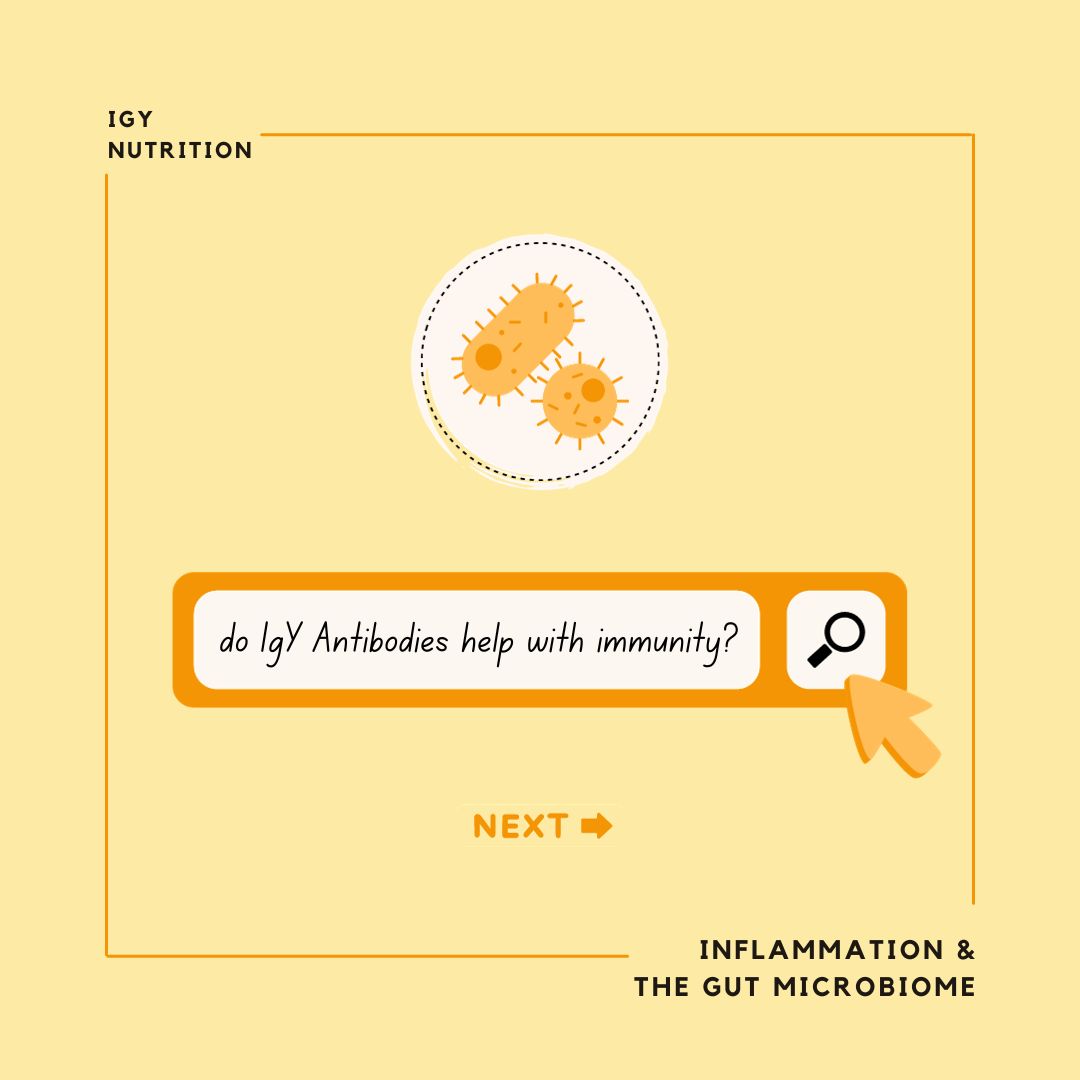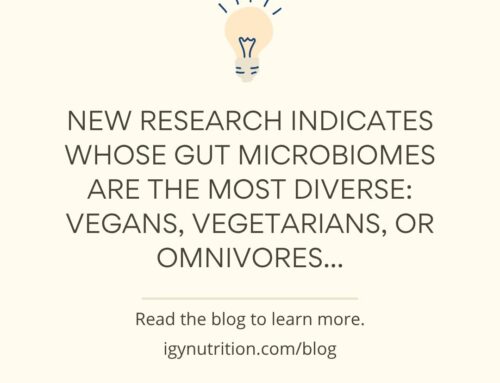Why are some people prone to catching colds while others seem to have immune systems made of steel?
We can think about this by examining what happens to our bodies when we get sick. Of course, we all know that germs invade our bodies and cause sickness. But some people are better at fighting germs off than others. What does that phenomenon have to do with gut health? Let’s take a look.
Immune Cells
When pathogens invade the body, they begin causing damage to our cells. To prevent them from harming us extensively, cells of our immune system kill invaders. Once they’re gone, they can no longer wreak havoc on our bodies.
Part of making sure we stay healthy is preventing invaders from getting into our bodies in the first place. The gut is one of the most accessible entrances to the body for invaders. Think about it – we’re always putting germ-covered foods and items in our mouths.
When was the last time you replaced your toothbrush? What about thoroughly washing your fruit? Yeah… same here.
That’s why we have so many immune cells concentrated in our guts. Germs enter the digestive system 24/7.
The tricky part for immune cells is identifying invaders. First, they must be able to differentiate pathogens from our native cells. Mixing this up can cause autoimmune conditions. Determining probiotic microbes from harmful microbes living in the microbiome is even more challenging.
So, how does our immune system “learn” which microbes are dangerous and which are not? This identification process is where gut health comes into play.
Identifying Invaders
We have several types of immune cells in the body, but one type is particularly crucial for gut immunity: B cells. B cells create antibodies and deploy them in the intestines. Quick reminder: antibodies are proteins that bind to and help kill their target. You can think of them as bullets that work against enemies.
Each B cell identifies an enemy, manufactures a bullet (an antibody), and pulls the trigger.
B cells’ antibodies also act as signals to other immune cells; other immune cells notice that bullets have been fired and migrate to the site to help out. This process allows other immune cells to “learn” which pathogens are harmful.
So, B cells are the star of the show. Without them, pathogenic bacteria reign (relatively) free. We must protect them at all costs! Getting your microbiome right is critical to supporting adequate B-cell function (and, thereby, your immune function). Supplements like bovine colostrum, probiotics, and IgY Max, which help regulate and rebalance the gut microbiome, likely improve our gut’s immune system. Consult your healthcare practitioner to decide on the appropriate protocol for you.
In short, a healthy gut microbiome fosters a healthy immune response. So, let’s learn a bit about how IgY Antibodies work.
Quick Recap: What is Dysbiosis?
The microbiome is an ecosystem of millions of microbes – like bacteria, yeasts, and even fungi – living within or on the human body. The term “gut microbiome” refers to the microbes inhabiting the GI tract.
At first glance, microbes living in the body might sound pretty gross – but it turns out they’re critical to our health. Many of the microorganisms living within us benefit our bodies by regulating our metabolism, helping us absorb vitamins from food, supporting our immune system, and much more (Source).
The thing is, not all of the microorganisms in our microbiomes are helpful. Some are harmful. These harmful microbes can damage the gut barrier, increase inflammation, and wreak havoc on our metabolisms, hormone production, immune systems, and mental health.
Plus, they can cause uncomfortable digestive issues like gas, bloating, and stool irregularity – no fun (Source).
To minimize the gut damage and annoying symptoms the harmful microbes cause and maximize the benefits helpful microbes confer, we want many beneficial microbes and very few harmful microbes to live in our guts.
There are typically too many harmful microbes and not enough helpful microbes in an unhealthy microbiome. This state of imbalance is called dysbiosis. Check out our blog titled “Is My Microbiome Imbalanced” to find out whether you might have dysbiosis.
So, what are IgY antibodies, and what do they have to do with dysbiosis?
What are IgY Antibodies?
Antibodies are components of animals’ immune systems that bind to and help to deactivate invaders.
For example, after getting a COVID-19 vaccine, humans develop antibodies specialized to help kill COVID-19. That way, the next time they are exposed to the virus, their immune system can defend the body from it more easily.
IgY antibodies are a specific type of antibody that can be used to deactivate particular pathogens living in the human gut.
But what exactly are they? Hang in there with us through a short bit of science to find out how IgY antibodies are made:
IgY technology harnesses natural passive immunity processes to develop antibodies for human use. Passive immunity is the transfer of antibodies from one organism to another. This transfer occurs naturally in mammals through breastfeeding. Avian organisms such as chickens transmit antibodies to their young through the yolks of their eggs.
This transfer fortifies the offspring’s immune systems with already responsive antibodies, which the mother has developed in response to her prior exposure to pathogens.
For example, if a mother chicken gets sick with the avian flu, she will develop antibodies to it and pass them on to her offspring through the yolks of her eggs.
Scientists can incorporate naturally-made antibodies of their choosing into medications or supplements by vaccinating mother hens with pathogens of choice. These antibodies can be used to deactivate pathogens in humans. Chicken antibodies, called IgY, work just as well in humans as in chickens.
After allowing the hens time to produce and transmit antibodies in their yolks, scientists extract them from the eggs. After this extraction procedure, the antibodies are ready for use as a medication or supplement. The only ingredient is, well, egg yolk (without the shell)!
Doctors have been enhancing immune responses through artificial passive immunity for decades. IgY antibodies are used in antivenom medications, diagnostic procedures, pediatric norovirus medication, and more. These antibodies have been studied for use in other applications, such as HIV-induced cachexia, cystic fibrosis, and fibromyalgia.
IgY Antibodies for Dysbiosis
Scientists at IgY Nutrition realized that IgY antibodies could be used to address dysbiosis by neutralizing well-known bad actors in gut microbiomes. So, they created IgY Max.
IgY Max is a specifically immunized egg-based supplement containing antigen-specific antibodies that target and neutralize 29 dysbiotic pathogens commonly found in the human gut microbiome, including Klebsiella pneumoniae, Salmonella, various strains of Staphylococcus and Streptococcus, and more.
In non-science speak: IgY Max is a supplement (made of only egg yolk) containing antibodies that neutralize pathogens living in the gut. These pathogens could contribute to your digestive symptoms if you have them.
Upon consumption, IgY Max antibodies exert their anti-pathogenic activity throughout the entire gastrointestinal tract. They have a high pathogen-antibody affinity, inhibiting bacterial adhesion, suppressing colonization, and neutralizing each targeted pathogen thoroughly. Neutralized pathogens are expelled from the gut through the stool (your poop!).
The product’s elimination of pathogens allows beneficial microbes to flourish, which may help to restore microbial diversity to the microbiome and rebalance it. This positive shift in microbiome composition reduces dysbiotic pathogens’ initiation of gastrointestinal damage and amplifies healthy flora’s conferral of gastrointestinal benefits.
University-led studies of IgY Max confirm this, showing that IgY Max consumers’ beneficial flora, gut barrier integrity, and inflammation levels improved significantly over eight weeks of use.
Participants’ levels of inflammatory cytokines, high-sensitivity C-reactive protein, helpful bacteria counts in the stool, zonulin, histamine, and diamine oxidase improved substantially. Perhaps most importantly, participants’ symptoms improved upon use.
Consumers report a decrease in symptoms of dysbiosis following consistent consumption, including improved stool regularity and composition, decreased bloating and gas, and higher energy levels. Though unofficial, the abundance of positive Amazon reviews describing users’ alleviation of symptoms is a telling indicator of IgY Max®’s power to benefit consumers. Improvement of the gut microbiome likely improves immunity.
Have you tried IgY Max for your digestive symptoms? Let us know in the comments on Instagram @igynutrition. See you next time!




